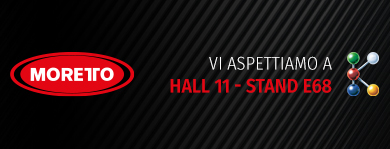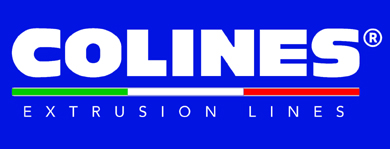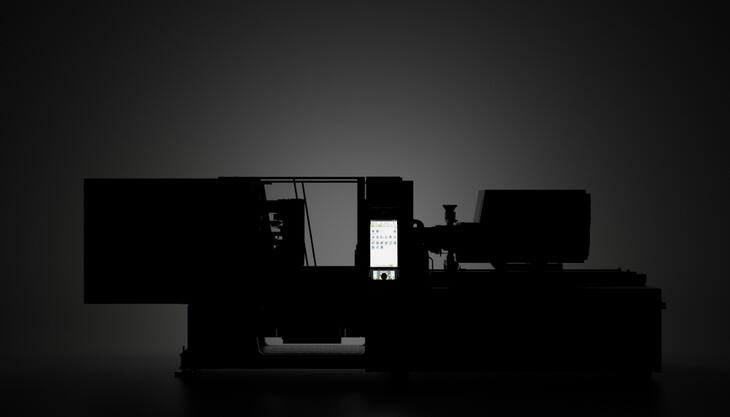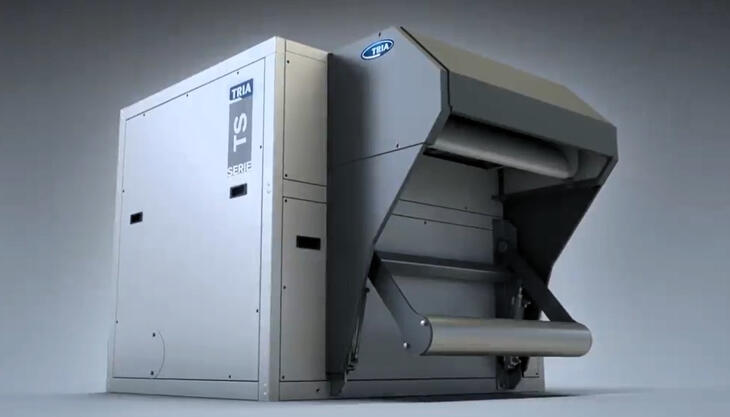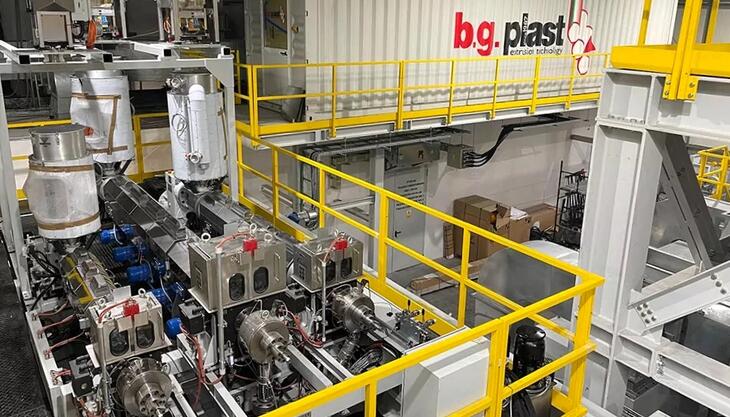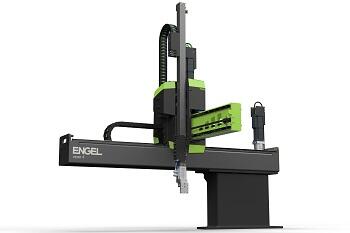
Engel extends its series of linear robots for K 2022 with the new viper 4. What is currently the smallest viper model sees the Austrian injection moulding machine manufacturer and automation expert explore a new approach. The use of low-voltage drive technology significantly boosts the energy efficiency. This innovation is another building block towards establishing a neutral energy footprint in plastics processing.
Now available in eight sizes - for nominal load-bearing capacities between 3 and 120 kg, the Engel linear robots can be ideally adapted to the given automation task in injection moulding operation. The new viper 4 is primarily used for picking and placing small moulded parts. It is designed for manipulation weights of 3 kilograms downstream of the swivel axis and for use on injection moulding machines with a clamping force of up to 2200 kN. In simple part picking and placing tasks, the viper 4 achieves a dry cycle time of 5.5 seconds, with a picking time of less than 1 second.
The special thing about the new viper 4 is its extremely low energy consumption. In a standard cycle of 6 seconds with full strokes and the maximum possible dynamics, the energy consumption is 200 Wh. This means that the small robot only consumes the same amount of energy as a legacy CAD desktop workplace. The viper 4 relies on 48-V drive technology to do this and only needs a 230-V AC single-phase power supply.
For the first time, all vacuum circuits feature an energy-saving function as standard. The vacuum is controlled by a flow program to reflect requirements. Depending on the application, this reduces the energy required for the vacuum circuits by up to 80%. Further benefits consist of reduced air filter contamination and far quieter robot operation. Engel is setting a new trend in linear robots here. In future, all Engel viper models will be equipped with energy-saving vacuum technology as a standard feature.
The viper 4 impresses with its compact size, especially in combination with tie-bar-less injection moulding machines. A version of the viper 4 with a shortened Y-stroke is available for horizontal part removal on Engel victory or Engel e-motion TL injection moulding machines, for example. It is then located far lower down on the injection moulding machine and can handle more than 30 percent additional weight. At the same time, it achieves even shorter dry cycle times and a longer service life. Horizontal part removal keeps the lower edges of the crane runway very low, enabling efficient automation even in tight spaces. Like the larger models, the new viper 4 features the iQ motion control smart assistance system and can be fully integrated into the Engel injection moulding machine's CC300 control unit. It is also available as a stand-alone solution.






